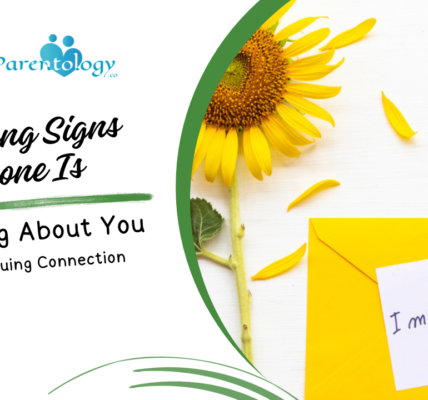11 Effective Ways to Fix a Broken Relationship: Expert Advice for Rekindling Love
Is your relationship going through a rough patch? Are you seeking ways to mend the cracks and reignite the spark? Relationships can encounter challenges, but with dedication and the right strategies, you can rebuild and strengthen your bond. Here are 11 effective ways of how to fix a broken relationship, curated by experts who understand the complexities of love and partnership.
1. Open Communication: The Foundation of Healing
Effective communication serves as the bedrock of any healthy relationship. It involves expressing thoughts, emotions, and concerns openly while actively listening to your partner. Honest dialogue fosters understanding and strengthens the bond between partners. It’s crucial to create a safe space where both individuals feel heard and valued without fear of judgment. By communicating openly, you can address underlying issues and work towards resolution. This foundation of trust and openness lays the groundwork for repairing a broken relationship, encouraging emotional connection and mutual support.
2. Revisit Shared Goals and Dreams
Reconnecting with the initial reasons that brought you together can reignite the passion in your relationship. Reflecting on shared aspirations, dreams, and values can realign your mutual goals, fostering a sense of unity and purpose. By revisiting these common objectives, partners can find renewed motivation and strengthen their emotional bond. This process of revisiting shared dreams helps in revitalizing the relationship by reminding both individuals of their initial connection and the vision they once had together.
3. Seek Professional Counseling or Therapy
Professional guidance through counseling or therapy can provide valuable insights and strategies tailored to your relationship’s specific challenges. A qualified therapist offers a neutral perspective, facilitating constructive dialogue and guiding both partners towards understanding and resolution. Therapeutic intervention can equip couples with effective communication tools, conflict resolution techniques, and a deeper understanding of each other’s perspectives. Seeking professional help demonstrates commitment and a willingness to work through challenges, which is essential for relationship repair.


4. Practice Empathy and Understanding
Empathy plays a pivotal role in repairing a broken relationship. It involves understanding your partner’s emotions, perspectives, and concerns without judgment. Putting yourself in their shoes fosters compassion and strengthens emotional connection. By acknowledging and validating each other’s feelings, couples can create a supportive environment conducive to healing. Practicing empathy nurtures a sense of mutual understanding and fosters an atmosphere of acceptance and trust within the relationship.
5. Quality Time: Nurture the Relationship
Dedicating quality time to each other strengthens the bond between partners. Engaging in shared activities and spending meaningful time together fosters emotional connection and intimacy. Quality time allows couples to create cherished memories, fostering a sense of closeness and understanding. It’s essential to prioritize this time, disconnecting from distractions and focusing solely on each other. Through these moments, partners can rekindle the love and create a deeper connection, which is crucial for repairing a broken relationship.
6. Heal Through Forgiveness
Forgiveness is a powerful tool in repairing a broken relationship. Letting go of resentment and grudges allows space for healing and moving forward. Forgiveness doesn’t imply forgetting but rather releasing negative emotions associated with past events. It involves acknowledging hurt, making peace with it, and choosing to move beyond it. Both partners need to work on forgiving each other and themselves to rebuild trust and create a fresh start in the relationship.
7. Work on Self-Improvement Together
Engaging in personal growth alongside your partner can positively impact the relationship. Working on self-improvement fosters mutual support, encouragement, and understanding. By setting individual goals and supporting each other’s growth, couples strengthen their bond and create a supportive environment for personal development. This collaborative effort towards self-improvement contributes to a healthier and more fulfilling relationship.


8. Revive Intimacy
Intimacy goes beyond physical closeness. It encompasses emotional connection, understanding, and appreciation for each other. Rekindling intimacy involves expressing affection, fostering emotional closeness, and creating a safe space for vulnerability. Partners can reignite the spark by openly communicating their desires and needs, prioritizing physical and emotional closeness, and reconnecting on a deeper level. Rebuilding intimacy is essential in repairing the emotional bond between partners.
9. Constructive Conflict Resolution
Conflict is natural in any relationship. Learning constructive conflict resolution techniques helps navigate disagreements without causing further harm. It involves effective communication, active listening, and a willingness to find mutually acceptable solutions. Constructive conflict resolution allows partners to address differences while respecting each other’s perspectives. By handling conflicts in a healthy manner, couples can strengthen their relationship rather than letting conflicts erode their bond.
10. Cultivate Trust and Transparency
Rebuilding trust after it has been damaged takes time and consistent effort. Transparency, honesty, and reliability are fundamental in restoring faith in the relationship. Partners must demonstrate reliability in their actions and openly communicate to rebuild trust. It’s crucial to follow through on commitments and be transparent about thoughts, feelings, and actions to create a trustworthy foundation.
11. Patience and Perseverance: The Key to Success
Repairing a broken relationship is a gradual process that requires patience and perseverance. It’s important to acknowledge that healing takes time and consistent effort. Partners need to stay committed to the journey of repairing the relationship, supporting each other through ups and downs, and being patient as the bond gradually strengthens.
Importance of Emotional Support and Understanding
Beyond the strategies mentioned earlier, providing emotional support and understanding to your partner is paramount. Listening without judgment and offering reassurance creates a safe space for open communication. Empathizing with your partner’s feelings, especially during challenging times, helps them feel validated and supported. Expressing care and empathy can significantly contribute to rebuilding trust and strengthening the emotional connection between partners.
Building a Strong Foundation of Respect and Boundaries
Respect is the cornerstone of a healthy relationship. It involves honoring each other’s opinions, feelings, and boundaries. Setting clear boundaries and respecting them fosters a sense of safety and mutual understanding. Both partners should communicate their boundaries and ensure they are respected to create a harmonious and respectful environment.
Addressing Root Causes and Patterns
Identifying the root causes of conflicts and understanding recurring patterns in the relationship is crucial. Reflecting on past behaviors and triggers helps in recognizing patterns that contribute to relationship issues. Addressing these underlying issues empowers partners to break negative cycles and work towards healthier interactions.


Embracing Vulnerability and Authenticity
Embracing vulnerability and authenticity in a relationship nurtures intimacy and trust. Being open about feelings, fears, and insecurities fosters a deeper emotional connection. It’s essential to create an environment where both partners feel comfortable expressing themselves authentically without fear of judgment.
Celebrating Achievements and Milestones
Acknowledging and celebrating achievements, milestones, and efforts made by each other strengthens positivity and appreciation in the relationship. Celebrating successes, big or small, contributes to a sense of shared joy and accomplishment, fostering a supportive and encouraging environment.
Respecting Individuality and Independence
Maintaining individual identities and personal space is vital in a healthy relationship. Encouraging each other’s interests, hobbies, and aspirations while respecting personal space helps partners grow independently. Balancing togetherness with individuality creates a well-rounded and fulfilling partnership.
The Role of Time and Patience in Healing
Healing a broken relationship is a gradual process that requires time and patience. Patience is key while both partners work on implementing positive changes. Understanding that progress may not be linear and setbacks may occur is essential. Being patient with each other and the process itself allows for gradual healing and growth.
Additional Resources for Relationship Repair
Seeking guidance from trusted resources, such as reputable books, articles, or relationship workshops, can provide further insights and tools for relationship repair. There are numerous online platforms, like Parentology, offering comprehensive advice, expert opinions, and practical tips for nurturing and repairing relationships.
FAQs on How to Fix a Broken Relationship:
Q1: How long does it take to fix a broken relationship?
A: There’s no fixed timeline as every relationship is unique. Patience and consistent effort are crucial for successful repair.
Q2: Can a broken relationship be salvaged?
A: Yes, many relationships can be repaired with dedication, commitment, and willingness from both partners.
Q3: Is therapy necessary to fix a broken relationship?
A: While therapy can be beneficial, not all relationships require professional help. However, it can offer invaluable guidance.
Q4: What if my partner is not willing to work on the relationship?
A: Communication is vital. Discuss your feelings openly and consider seeking guidance on how to navigate this challenge together.
Q5: How can I rebuild trust after betrayal?
A: Rebuilding trust takes time. Consistent honesty, transparency, and efforts to make amends are crucial in regaining trust.
Q6: What role does forgiveness play in fixing a relationship?
A: Forgiveness is essential. It allows healing and creates space for a fresh start in the relationship.
Q7: How important is personal growth in repairing a relationship?
A: Personal growth contributes significantly to relationship improvement. Working on oneself can positively impact the partnership.
Q8: Can quality time together revive a relationship?
A: Absolutely. Spending quality time fosters emotional connection and strengthens the bond between partners.
Q9: Should we revisit shared goals and dreams to fix the relationship?
A: Reflecting on shared aspirations can reignite a sense of unity and purpose in the relationship.
Q10: Is effective communication the key to fixing a broken relationship?
A: Yes, open and honest communication is fundamental in resolving conflicts and rebuilding trust.
Final Thoughts: Nurturing a Lasting Relationship
Repairing a broken relationship is a challenging yet rewarding journey that requires dedication, mutual effort, and understanding. It’s essential to remember that no relationship is perfect, and challenges are growth opportunities. By implementing these strategies of how to fix a broken relationship, embracing open communication, and supporting each other, couples can work towards building a stronger, more fulfilling relationship.
For a more in-depth understanding and personalized guidance on relationship repair, check out Parentology’s comprehensive resources on nurturing healthy relationships.
Remember, mending a broken relationship takes commitment, understanding, and effort from both partners. Implementing these strategies can pave the way for a stronger, more fulfilling bond.





